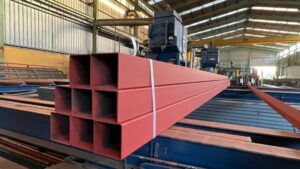
Steel consumption in the Middle East and North Africa, excluding Iran, should rebound 2% on-year in 2020 to 41 million tonnes after dropping -7% in 2019 to 40mt, the Arab Iron & Steel Union (AISU) says in a newly-released report.
MENA economic growth has slowed in 2019 due to lower oil prices, continued military operations in Syria and Yemen, and the delay of reconstruction projects in Iraq and Syria, AISU said. This is despite economic reforms being carried out, which include reduction of government energy subsidies, application of VAT, and diversifying away from oil dependence.
Gulf Cooperation Council steel consumption is expected to decline -8% on-year in 2019 to 16.4mt before rebounding 1% next year to 16.5mt. An increase in imports into the region led to the initiation by the GCC of a wide-ranging steel safeguard investigation in October (see Kallanish passim).
The GCC’s largest steel consumer, Saudi Arabia, is expected to see economic growth of only 0.5% in 2019 due to lower oil prices, reduced government spending, and construction sector slowdown. Steel consumption will fall -7% this year to 7.3mt before rising 2% in 2020 to 7.5mt.
United Arab Emirates economic growth is seen at 2.2% in 2019, affected by lower oil prices and weak construction activity following the completion of Expo 2020 projects. Growth should improve next year with increased government spending. Consumption has slumped -12% in 2019 to 5.3mt and is seen falling a further -7% next year to 4.9mt.
North African economic growth is seen slowing to 3.6% in 2019 from 4.2% last year due to instability in Libya and lower agricultural production in Morocco. Consumption will fall -7% in 2019 to 18.5mt before rising 5% next year to 19.4mt.
In Egypt economic growth will accelerate in 2020 to 5.6% from 5.3% this year. Steel was hampered by low liquidity and slow large project implementation in the first half of 2019 but the second half should improve with faster projects’ implementation. Consumption will fall -6% in 2019 to 9.5mt but rise 4% next year to 9.9mt.
Algerian consumption is seen falling -9% in 2019 to 4.8mt before rising 4% next year to 5mt.




